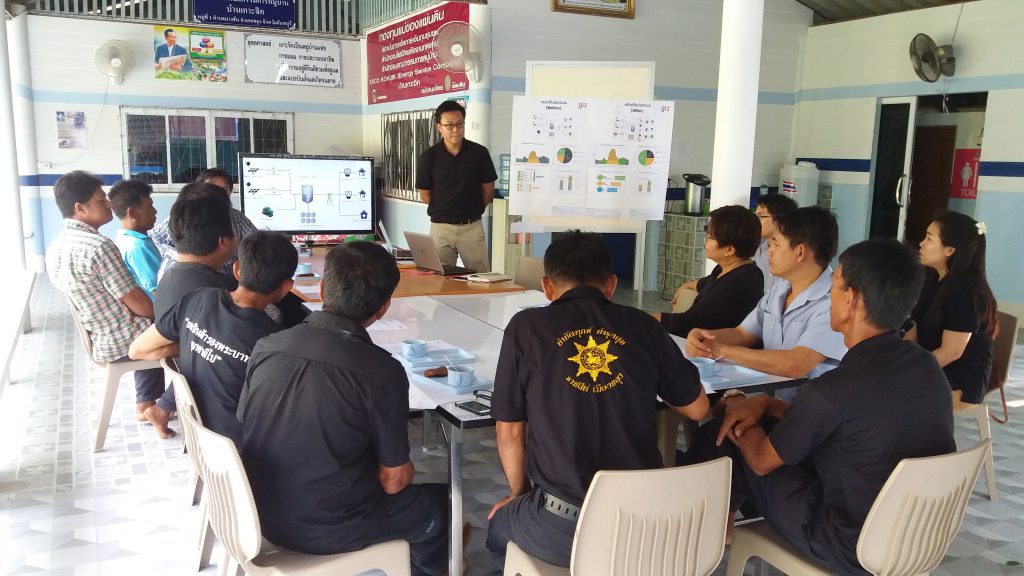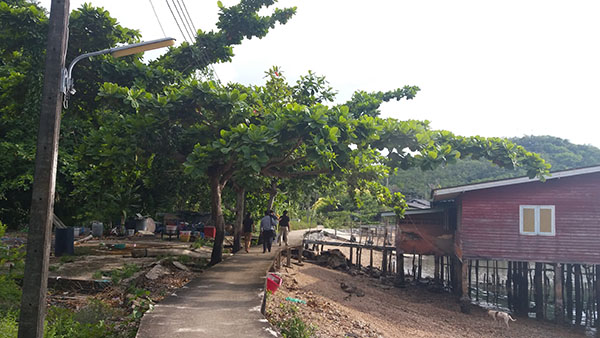As the sun rises over the horizon, the morning TV news drifts from houses, a radio station hums in the background and the fragrance of freshly steamed rice from rice cookers forms the backdrop for a casual stroll along the walkway on Koh Jik in Chanthaburi province. These activities and indeed the lives of the residents of the island – disconnected from the national electricity grid – are made possible by power generation using a mix of solar and diesel through its own grid.
On 4-5 May 2017, the Ministry of Energy (MoEn) and the Provincial Energy Office (PEnO) of Chanthaburi Province and Renewable Energy Project Development Programme (PDP) were back on the island for the second time after a first visit in August last year, during which crucial technical problems were identified. A community meeting was held to provide feedback on the current situation and possible solutions to the community committee.
After some years of system operation, the community-operated ESCO (Energy Service Company) has started to face difficulties in supplying electricity around the clock as they are unable to replace worn-out equipment. This is due to the fact that the current electricity fee collected does not include any replacement cost.
A project to upgrade the system, with support from Ministry of Energy, is underway. The installation of additional Photovoltaic (PV) panels and replacement of the worn-out batteries will ensure more stable supply and cut down dependence on diesel by more than 50 per cent. The minimization of pollution from diesel is crucial to the island community whose livelihood relies on natural resources. The community now realises that each component in the system has a limited lifetime and will need to be replaced in the future. Thus to ensure sustainable operation of the system, it is important that the community reflects the operation, maintenance and replacement cost in its new electricity pricing structure from day one.
MoEn and PDP take full account of community participation, knowledge transfer and capacity building, all of which are key to sustainable system implementation. Therefore, smaller rounds of information feedback sessions will be organized for the villagers and technical training held for the community technicians. The decade-long journey of Koh Jik is rich with invaluable experience and can serve as a model for RE deployment on other off-grid islands in Thailand that have limited electricity access. This is a big step for Koh Jik towards 100-per-cent renewable energy.

